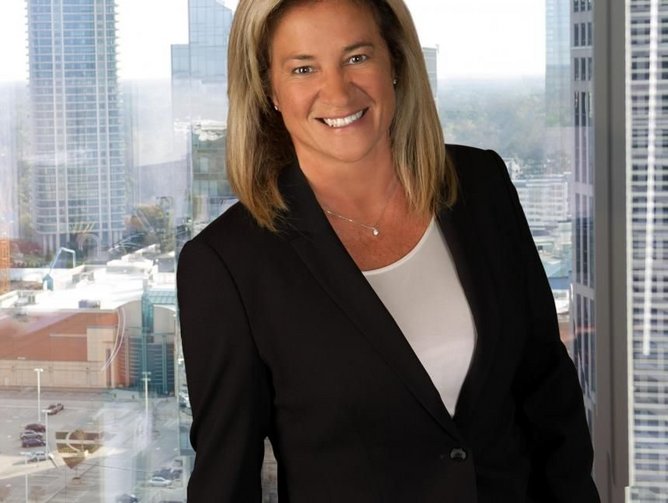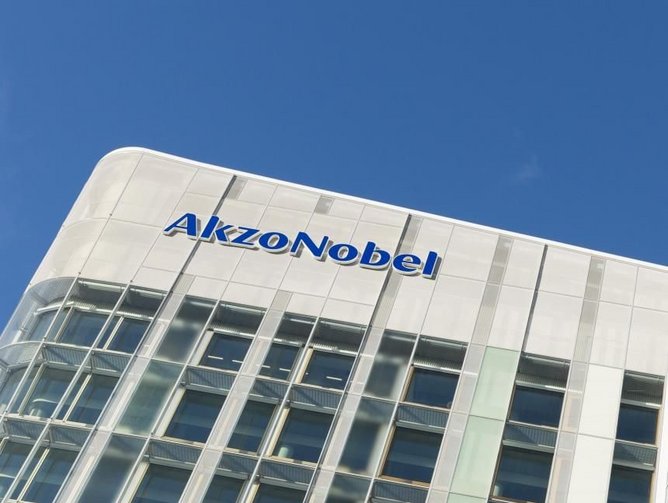How AkzoNobel has focused on operational excellence to redefine its leading position in the market
While you may not be aware of the ways in which AkzoNobel has impacted the products you use every day, it is a business that has remained almost omnipresent since its inception in 1994. As a global leader in paints, coatings, and specialty chemicals, AkzoNobel serves businesses and consumers via 46,000 staff across 80 working locations with its industry expertise and skill.
When a company of this size and reputation requires a change, the task of finding a true expert can be daunting, if necessary. In the case of AkzoNobel, the right expert was found in the form of Millissa Hernandez Flanagan, SVP Integrated Supply Chain.
Hernandez Flanagan holds degrees in chemistry and chemical engineering, and has been honing her knowledge and experience for 33 years across the realms of metals, refining, chemicals, and plastics.
Having been a major team player for big names like ConocoPhillips, GE, Novelis, and SABIC, she joined the AkzoNobel family just over two years ago. The common thread for her career has been operational excellence, supply chain leadership, and change management, and as such, these are areas in which she truly thrives.
So, how has Hernandez Flanagan’s extensive skillset contributed to AkzoNobel’s success thus far?
“My approach to transformation is always very similar,” she explains. “I use an approach of looking at strategies and building an organizational model around that strategy as a team, before deploying it. What has made that work, and what I’ve learnt over the years, is that the team owns the strategy from the beginning.”
On first stepping into her current position, Hernandez Flanagan realized it was a business which was growing wildly. Chemicals – her specialty – in particular have been consistently profitable, showing incredible growth worldwide. However, the business needed to grow even further and wider, but lacked the infrastructure to support that growth.
“The teams knew where the gaps were,” Hernandez Flanagan says. “They identified the gaps, and so when we built an organizational model, we used continuous improvement methodology to drive and lead key projects to build it out. This meant using standard operational excellence models to think about what a supply chain team should look like.”
Having established a fully-formed and efficient team, Hernandez Flanagan then applied that structure to her specific division – Pulp and Performance Chemicals – and allowed the group to take ownership of it, building layers and growing into their roles.
Implementing excellence
Hernandez Flanagan helped to build an End to End Integrated Supply Chain organizational model removing siloed processes and helping the business to deal with mergers and acquisitions more effectively. Her team, which boasts a broad range of skills, now exceeds 2100 people globally – and that requires standardized tools.
“When you put in a model where you need to standardize and leverage acquisitions, standardized processes, roles, tools, data and governance are needed,” she explains. “To support infrastructure needed, we added a process excellence group that knows how to optimize global operational processes and tools. They know ERP and middle-layer software, and how to make it work at site level. We have 28 sites across 19 countries, and we’ve effectively deployed standardization at every one of those sites.”
One might assume such a change required a drastic overhaul of staff too, but this has not been the case for AkzoNobel. Many of its teams have worked together their entire career but while they are all very experienced, they lacked knowledge of operational excellence. For Hernandez Flanagan, the key was not hiring new people, but training the talent the business already had.
“I didn’t make many changes. I brought in a few new leaders – one for capex, one for global supply chain, and so on – but aside from that, I kept the Akzo team and trained them. We had to make some adjustments along the way, but thanks to getting existing staff on board with change management, we’ve really knocked it out of the park.
“They know this business, and they now have gained new knowledge on operational excellence and are really driving it. They’re now wildly set for success.”
Hernandez Flanagan had also deployed similar systems at GE, SABIC, and Novelis.
“The reason this model works so well is because we kept it simple,” she says. “We had the right blend of existing talent who took the training very well, and now we’re looking at growing talent.”
Hernandez Flanagan considers it a responsibility of hers and AkzoNobel’s to invest in the industry and emerging talent, and so the team is working on creating and training fresh talent with education programs that will fast-forward them into the market.
This education also extends to systems which are increasingly becoming industry standard, such as Kaizen and Six Sigma, and how AkzoNobel can apply them to itself. Hernandez Flanagan is now working on value stream mapping to solidify the company’s continuous improvement strategy yet further, increasing site capacity and employee education side-by-side. The teams are constantly growing and training, and safety and productivity continues to increase as a result.
Leading the industry
This attitude goes a long way to explain AkzoNobel’s world-class position. In safety, working environment, and sustainability, as well as operational efficiency and change leadership, the Pulp and Performance Chemicals business continues to lead the way. Hernandez Flanagan is of the opinion that transformation of a businesses should always be focused on the right degree of change required for the challenge striving to maintain safety excellence, maximizing productivity and enhancing growth with optimized capital. Deployment of an end to end Operational Excellence strategy should be conducted in multiple waves that complement key business opportunities.
“Having standardized basic HSE, Six Sigma, operations, maintenance, quality, supply chain, procurement, and capital projects, we’re now striving for excellence at the right level within each function,” says Hernandez Flanagan. “Enhancing our Digitization strategy is on our radar, to take us to the next level of excellence within our business.”
Sustainability is also a passion for Hernandez Flanagan and her team. Green initiatives can often by overlooked in the supply chain industry, but AkzoNobel values its eco efficiency targets, concentrating on lessening its use of electricity and optimizing water across all of its sites.
“We’re looking improve our carbon footprint around the globe,” she says. “We also focus heavily on zero hazardous waste to landfill initiatives, and all components that drive the eco-efficiency portion of sustainability for the company.”
With each element of the transformation’s infrastructure firmly in place and underway, AkzoNobel’s task is to continue its positive development into the future.
“We now have an end-to-end team focused on safety, productivity, and growth, so we can concentrate on making money – and how do you make money? Through Safety, Productivity and Growth.”
Making money for AkzoNobel means remaining excellent with regard to safety, sustainability, and productivity. The business has received substantial productivity feedback since making its recent changes, and these changes allow it to grow faster and deeper than the competition through unconstrained continuous improvement and the optimization of both capex and opex.
“Our differentiator now is that we already have our end to end Integrated Supply Chain team in place, and we’ve deployed an Operational Excellence strategy over the last 18 months,” says Hernandez Flanagan. “We’ve got the right people, the right processes, the right data, and the right tools. The infrastructure is in and that’s how you manage and grow a business in a smart way.”
She concludes: “Historically we have seen businesses making revenue and hit targets, but it’s short-term. An Operational Excellence model with an end to end Integrated Supply Chain structure provides a heartbeat that has poised our business for growth, and that is very exciting.”



